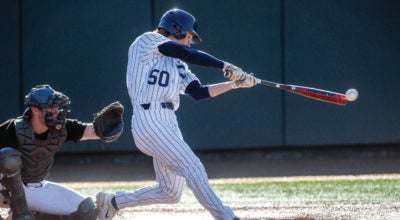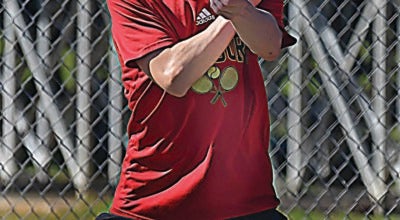Youth Baseball: Town saves sport for the kids
Published 12:00 am Saturday, May 23, 2009
By James Hannah
Associated Press
GREENFIELD, Ohio ó Memorial Day weekend often signals the start of youth baseball, and it almost didn’t happen this year in this town of 5,000, where the sputtering auto industry choked off money for recreation.
But residents took a page from their famous son, “Take This Job and Shove It” singer Johnny Paycheck, and went their own way by raising money, fixing up fields, scrounging for equipment and signing up 450 kids to play.
Resident Laura Saylor, whose daughter plays baseball, said the sport is especially important now because a lot of people don’t have money.
“This kind of gives them hope, too, because when the parents don’t have hope, what do you have?” she said. “And these kids know that. They know times are hard.”
The season opens Tuesday.
“I’ll be relieved once that first pitch is thrown,” said Fred Everhart, among the Gang of Nine volunteers who helped save baseball.
This town, about 50 miles southwest of Columbus, has other treasures and traditions, such as lining the streets every year to watch decked-out prom-goers strut into the stately McClain High School.
But heartache has paid a visit to Greenfield. In the 1990s, the town found itself increasingly reliant on auto suppliers. And when the industry went into a tailspin last year, residents began to get pink slips.
By this October, 500 auto-related jobs ó or 70 percent of the town’s industrial employment ó are expected to be gone.
To make matters worse, cargo carrier DHL Express announced it was pulling out of an air park that employed 8,000 in nearby Wilmington, throwing many other Greenfield residents out of work.
“I’ve seen more grown men cry in the last 18 months than I have in my entire life,” said Sandra McNeil, executive managing officer of the Home Building and Loan Co. “People don’t know where to go or what to do.”
The city mirrors what has been happening in many places in Ohio, where the April unemployment rate was 10.2 percent, the highest in more than 25 years.
City Councilwoman Earlene Scott recently discovered that many of the people accepting handouts of used clothing were returning regularly for more clothes because they didn’t have washing machines or the laundry money to clean what they had picked up earlier.
“I sort of did a big gulp,” Scott said.
City Manager Charley Bowman said $800,000 of the $1.6 million budgeted to run the city has been lost because of the economic downturn.
Some residents had feared their children would be tempted by alcohol and drugs if they weren’t busy with baseball. Others worried that tensions fueled by unemployment would boil over without the game. Others simply couldn’t fathom the idea of summer without youth baseball, a beacon to everyone regardless of economic or social class.
The volunteers persuaded the town to give them $5,000 of the $20,000 that originally had been budgeted for baseball. They held a grocery raffle and a pancake supper to raise more money.
The Gang of Nine and a small army of other volunteers mowed the grass at the park, painted dugouts, fixed fences and patched up the fields. Purple petunias and yellow marigolds were planted.
Some concessions were made. The scoreboards and lights won’t be used because they are too expensive to operate. The restrooms will remain closed, replaced by portable toilets to save money on water and sewer.
Teams will play with used baseballs for the most part (one new baseball per game). And many of the games will be played without base umpires.
But 450 kids ages 5-16 signed up to play, looking forward to opening day.
“Awesome,” Blake Adams, 6, said during a recent practice. “It’s really fun that you can meet new friends when you do the teams.”
Earlier, Everhart had strolled the grounds, showing off a new flagpole that he believes symbolizes the survival of the program.
His voice cracked and his eyes filled with tears as he thought about the volunteers who refused to let baseball die.
“I didn’t realize how close we were to not having it,” he said. “Once that first pitch is thrown, we’ll know we’ve done something.”





